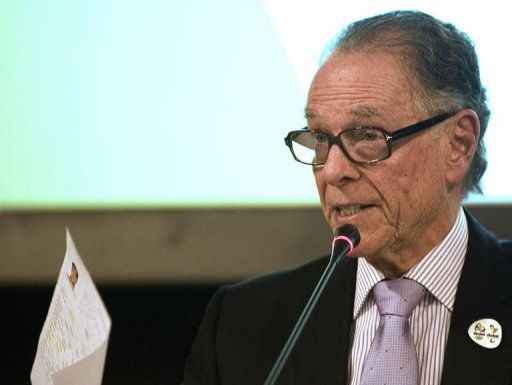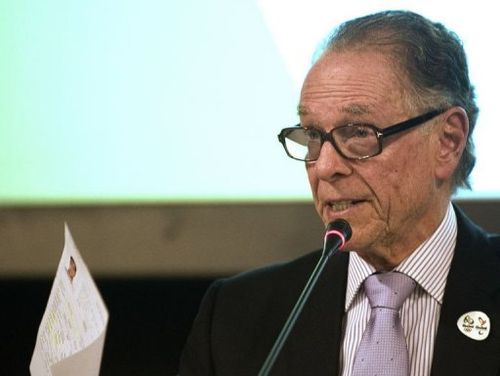
Rio 2016 official downplays stolen London files
RIO DE JANEIRO (AFP) –

Brazilian Olympic Committee chairman Carlos Arthur Nuzman delivers a speech during a press conference to clarify a situation between the London Committee and Rio’s one about non authorized copies of files from the London Committee, in Rio de Janeiro, Brazil.
The president of the Rio 2016 Olympic organizing committee downplayed Thursday the theft of computer files by Brazilian officials relating to the organization of the 2012 London Olympics.
“The unauthorized copying of documents belonging to the London 2012 Olympic Games and Paralympic Games did not result in any grave security violation or compromise any personal data,” Carlos Arthur Nuzman told a press conference, reading a letter sent by LOCOG head Paul Deighton.
Ten Brazilians who had been working alongside London staff during the summer Olympics and Paralympics were fired on September 21 for downloading internal documents without authorization.
Nuzman said he did “not at all” feel responsible for the incident.
“We quickly identified what happened and consider that firing (those individuals) was the necessary punishment for what they did,” he said.
In his letter, Deighton said that the incident would not affect relations with the Rio 2016 team.
“All of the documents were quickly returned and there was no impact of any sort on the close relations that we have always maintained with Rio 2016,” Deighton said, according to the letter that Nuzman read.
Rio 2016 officials earlier said the theft was an “isolated” incident given that some 200 of their employees were in London for the duration of the Games.
According to reports, London 2012 chairman Sebastian Coe telephoned Nuzman when he discovered that the documents had been downloaded without permission, and demanded that immediate action be taken.
Brazilian sports commentator and journalist Juca Kfouri claimed on his blog that the London files included information about the International Olympic Committee’s strategic planning and security.